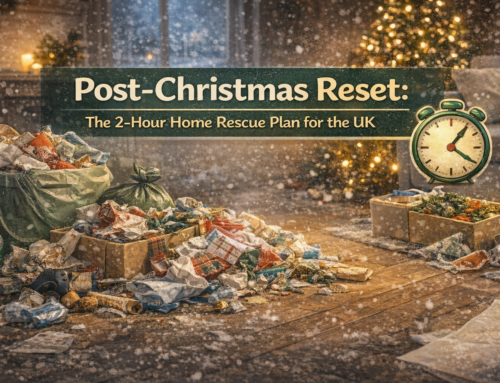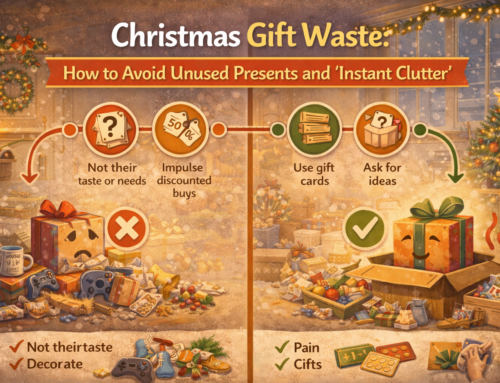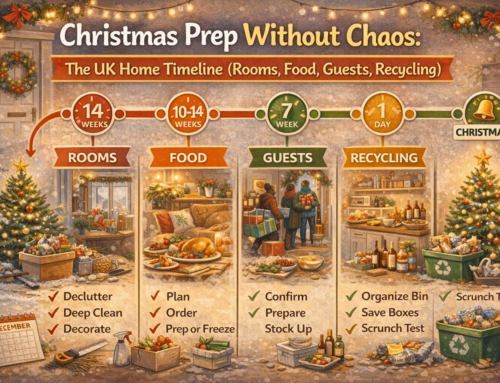Managing a loved one’s estate is one of life’s most challenging responsibilities. Beyond grief, there are legal and practical duties to complete. At the heart of this process is probate paperwork, the essential documentation that authorises executors to act, ensures compliance with UK law, and prevents costly delays.

Key Takeaways
- Probate paperwork is the foundation of every estate clearance.
- Verified legal documents avoid disputes and delays.
- Professional support balances efficiency with respect for belongings.
- Accurate valuations can reduce or offset clearance costs.
- Ethical clearance practices benefit families, communities, and the environment.
Why Probate Paperwork Comes First
Probate paperwork establishes legal authority before a single item leaves the home. Without it, executors risk disputes among beneficiaries, blocked sales, and even fines. By preparing documents in advance, families ensure a smoother and more dignified clearance process.
In addition, professional providers often refuse to begin work without evidence of legal permission. This safeguard protects both the estate and the clearance team.
Who Handles What? Key Stakeholders in Probate
| Stakeholder | Role | Impact on Process |
|---|---|---|
| Solicitors | Verify wills and legal rights | Ensure compliance with UK inheritance law |
| Executors | Manage distribution of assets | Protect beneficiaries’ rights |
| Clearance Teams | Handle possessions | Preserve valuable or sentimental items |
When these groups work together from the start, estates are managed more smoothly. Families can focus on emotional healing while professionals coordinate logistics and valuations.
Essential Probate Documents to Collect
To begin an estate transition, executors should gather a clear set of documents. These not only confirm ownership but also simplify valuations and distribution.
Core Documents Include:
- Will and Death Certificate – Establish executor authority.
- Grant of Representation – Confirms right to manage the estate.
- Property Deeds – Verify ownership of property.
- Insurance Policies – Identify covered valuables.
- Financial Records and Receipts – Support valuations and prevent disputes.
Therefore, compiling a central file and keeping digital backups ensures that critical information remains safe and accessible.
Probate Paperwork and Valuation Reports

Another crucial reason to prepare probate paperwork early is its role in valuations. Solicitors often require signed inventories before granting approval for distribution. As a result, valuations based on proper documentation prevent mistakes such as discarding heirlooms or undervaluing antiques.
| Document Type | Purpose |
|---|---|
| Property Deeds | Confirm legal ownership |
| Insurance Policies | Identify covered valuables |
| Receipts | Establish purchase history |
For example, a 2023 survey showed that 68% of estates contained overlooked possessions worth more than £500. This finding demonstrates why paperwork and valuation go hand in hand.
Step-by-Step: Organising Probate Paperwork
- Gather Essential Documents – Will, death certificate, deeds, and financial records.
- Create an Inventory – Catalogue assets into categories: high-value, sentimental, or for disposal.
- Consult Professionals – Share records with solicitors and clearance experts for guidance.
- Schedule Valuations – Arrange appraisals before clearing begins.
- Prepare Backups – Keep digital copies to prevent loss or damage.
This systematic approach ensures no detail is missed while protecting both financial and emotional interests.
How Valuations Can Reduce Costs
Many families are surprised to learn that resale items often cover 30–50% of clearance fees. From vintage furniture to rare books, partnered auction houses transform overlooked objects into valuable assets.
| Valuation Focus | Benefit | Example |
|---|---|---|
| Collectables | High auction returns | Rare stamps fetching £800+ |
| Household Items | Local reuse & charity | Quality cookware |
| Documentation | Tax compliance | HMRC-approved lists |
By integrating valuation with clearance, estates avoid unnecessary expenses while ensuring fair distribution of assets.
Sustainable and Ethical Clearance Practices
Modern estate management isn’t just about logistics – it’s also about responsibility. Many clearance providers now divert over 75% of items away from landfill, focusing on recycling and donation.
| Disposal Method | Environmental Benefit | Community Impact |
|---|---|---|
| Upcycled Furniture | Reduces timber waste by 40% | Supports local training schemes |
| Electronics Recycling | Prevents toxic leakage | Funds IT equipment for schools |
| Textile Repurposing | Saves 3,500 litres of water per kg | Supplies affordable materials for artists |
This green approach not only reduces costs but also gives belongings a meaningful second life.
Probate Paperwork for Different Property Types
Probate clearance varies depending on the property type. A detached family home poses different challenges compared to a London flat or a commercial office.
| Property Type | Key Challenges | Solutions |
|---|---|---|
| Townhouses | Multi-level logistics | Staggered removal schedules |
| Flats | Limited lift access | Compact equipment & protective coverings |
| Offices | Sensitive documents | On-site shredding & secure disposal |
| Warehouses | Industrial-scale contents | Specialist machinery deployment |
Experienced teams adapt clearance strategies to fit the property’s unique requirements, ensuring efficiency without compromising care.
Emotional and Logistical Challenges

Grief makes decision-making harder. Families may disagree over sentimental items, while deadlines imposed by solicitors or tax authorities add pressure. Professional clearance providers often act as mediators, balancing fairness with compassion.
| Challenge Type | Common Issues | Professional Support |
|---|---|---|
| Emotional | Conflicting attachment to items | Neutral mediation |
| Practical | Probate deadlines | Coordinated scheduling |
| Financial | Undervalued assets | Expert valuation |
With structured support, families can avoid conflict and preserve harmony during a difficult time.
Conclusion
Probate paperwork is the cornerstone of smooth estate management. By organising documents, coordinating valuations, and working with professional services, families transform a daunting process into a structured journey.
Key benefits include:
- Protecting legal and financial interests.
- Recovering unexpected value from overlooked items.
- Ensuring compliance with UK inheritance and disposal laws.
- Reducing environmental impact through sustainable practices.
For London families seeking support, professional house clearance services offer tailored solutions, from legal guidance to eco-friendly removals. To better understand valuation and auction partnerships, consult trusted organisations like The National Association of Valuers & Auctioneers (NAVA Propertymark).
By preparing thoroughly and choosing experienced partners, you can honour a loved one’s legacy while easing the administrative and emotional weight of probate.





